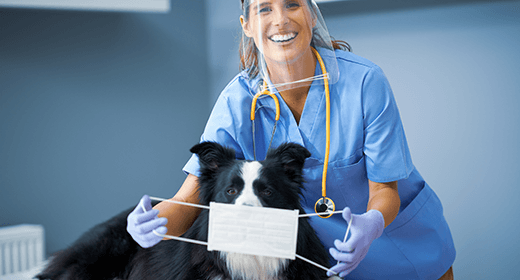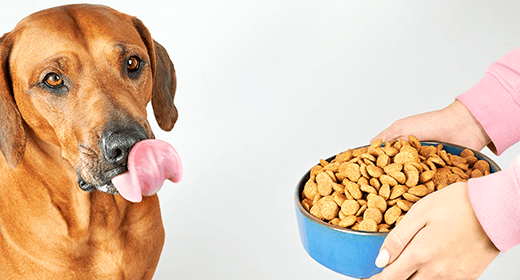

In these unprecedented times we are all concerned about each and every member of the family, including the four-legged ones. Our friends and expert partners at the Waltham Petcare Science Institute have been working tirelessly for more than 50 years to bring their scientific knowledge to benefit pets all around the world. Together, we are closely monitoring the latest events and scientific insights surrounding coronavirus. Please follow this
Opens a new windowlink to Waltham’s latest guidance on how to care for your pet during Covid-19.


Even if a pet food is formulated to provide all of the essential nutrients required by a dog, it is of little value if the animal will not eat it. Quality pet foods are carefully formulated not only to be highly nutritious but also to be highly palatable.
Palatability is a term used to describe how well a dog likes the taste, smell, and texture of a food. A premium dog-food manufacturer spends a considerable amount of time conducting controlled feeding studies to determine the right combination of ingredients and processing techniques to produce a nutritious, palatable food.
There are two ways to test and measure the palatability of a dog food:
First Bite: The first palatability test is called the “first bite” preference. This measures the dog's first impression of a food's aroma and appearance.
Total Volume: Because the novelty of a new diet can cause highs and lows in first-bite tests, a second test is conducted called “total volume” measurement. Total volume determines the staying power or ability of a diet to maintain the animal's interest over time. This is the dog’s overall choice of a food based on taste, texture, and nutrition for the entire test period.
In order to obtain and interpret accurate results, palatability studies must be performed by experienced animal technicians and the data analyzed by research nutritionists. Feeding studies are conducted by offering an animal two bowls of food at the same time. Each bowl contains a different diet that has been carefully weighed and recorded.
The technician observes which food the dog chooses to eat first, and then records that as the first-bite preference. After a specific time period, bowls are removed and any remaining food is weighed and recorded. Diets also are switched from left to right each day of the study to ensure that dogs are not eating one diet simply out of habit.
The total-volume measurement is determined by calculating the difference between the beginning and ending weights of each food. This procedure is repeated using the same two diets with the same group of dogs for five days. At the end of the five-day study, all observations and data are compiled and analyzed to determine the overall palatability of each diet.
Dogs are attracted by not only the taste of a food, but also to its sight, aroma, and texture. Dogs are particularly interested in the smell of food.
Liquid digest is simply protein that is enzymatically broken down into amino acids, which are the building blocks of protein. The enzymatic process reduces large protein pieces to smaller protein pieces and free amino acids. By adding small amounts of acid, the enzymatic or digestive reaction is stopped and a stable liquid ingredient is produced. After a dry-food formula is cooked, formed into kibbles, and dried, the liquid digest is sprayed evenly on the outside of the dry kibbles. This is called “enrobing.” Not only does the liquid digest make the food highly palatable, but it also adds to the overall digestibility of the food.
Yes. We use liquid digest made from chicken to enhance the palatability of dry foods and to contribute to the nutritional value of the diet. Some pet foods include flavor enhancers, such as onion powder, which simply mask the aroma and taste of the ingredients and provide no nutritional benefits to the animal.